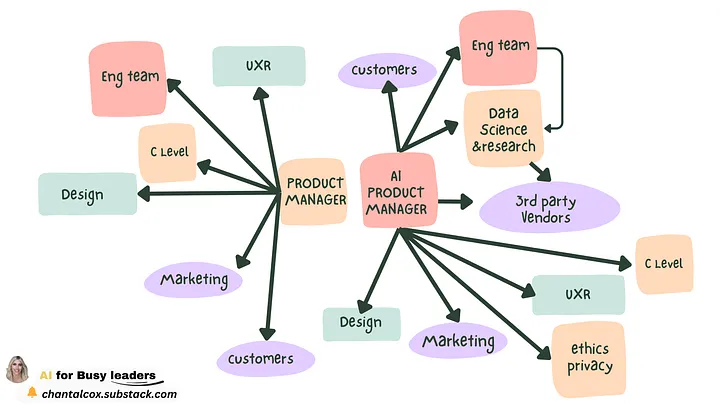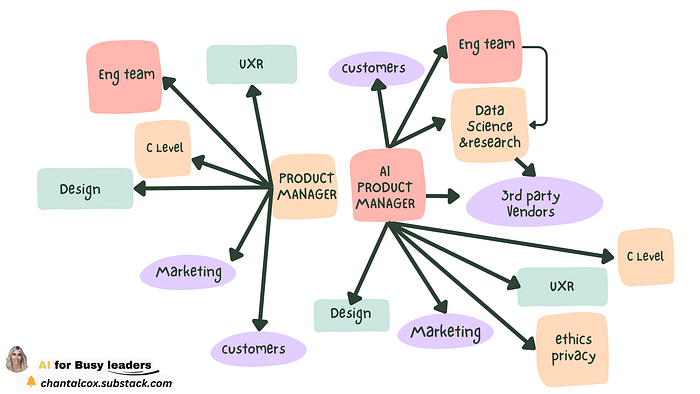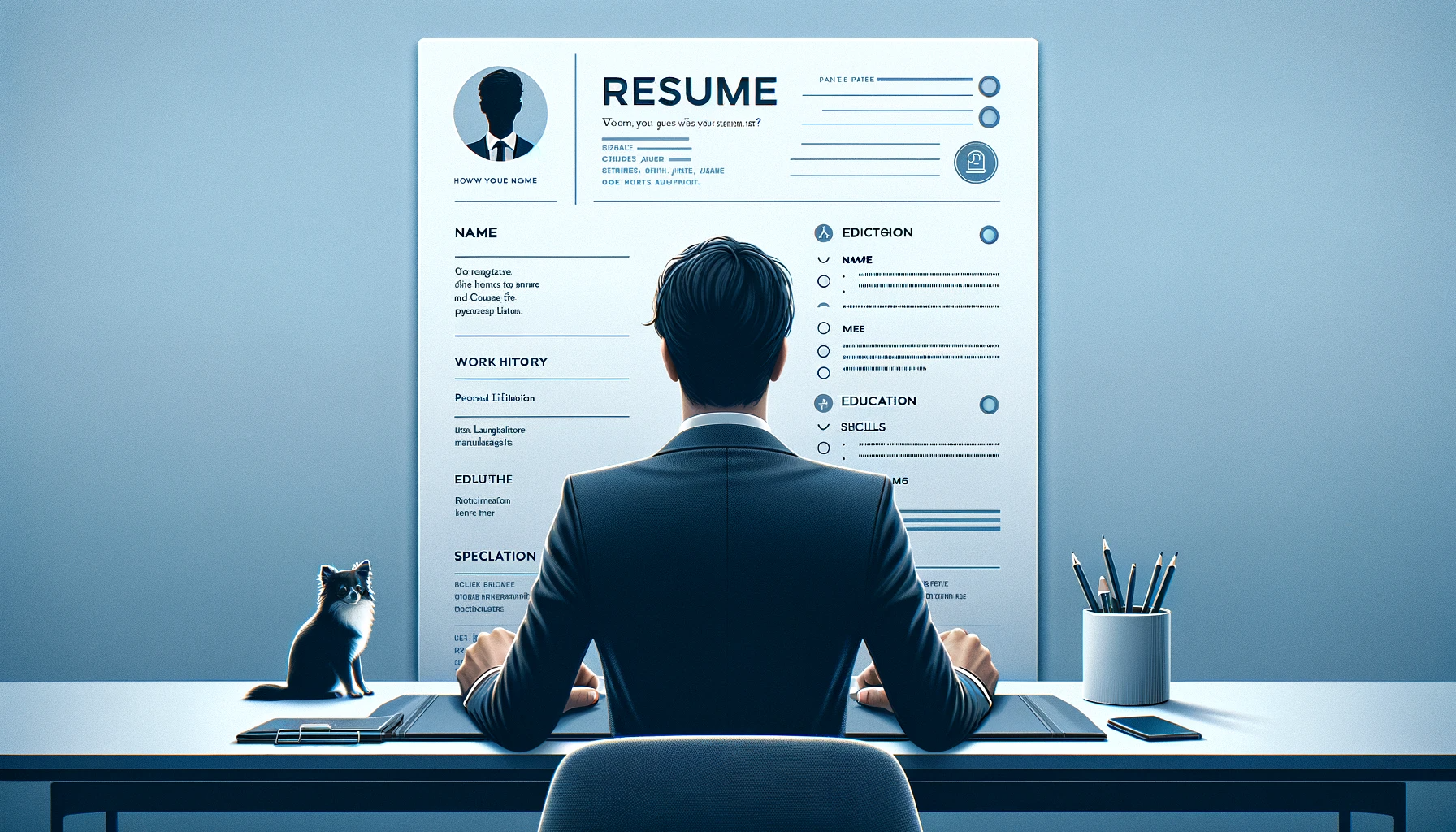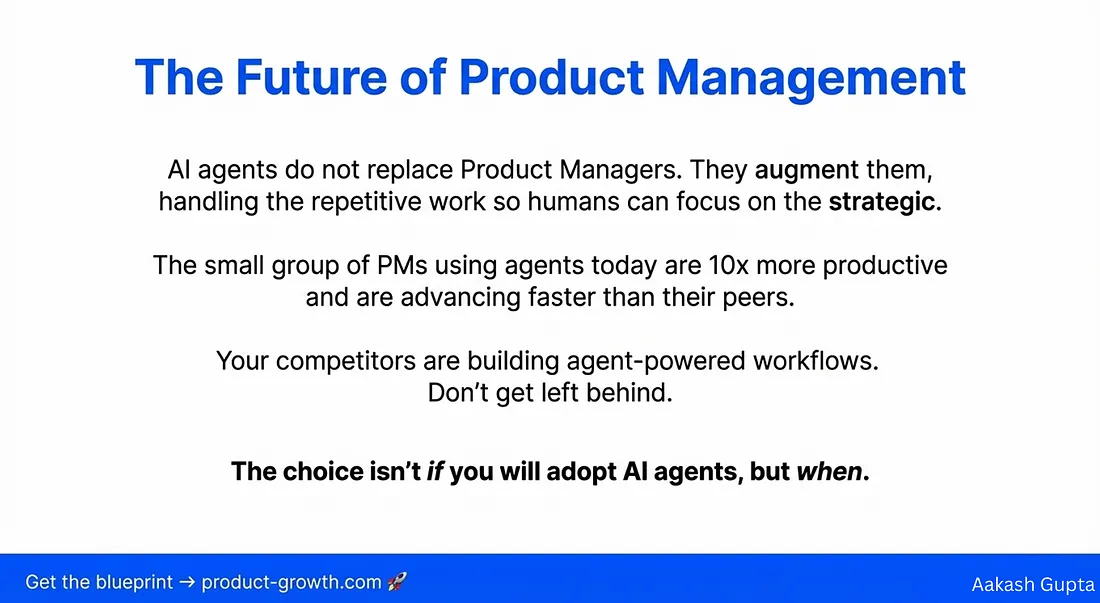
How is an AI Product Manager different from a traditional PM?
I have been working on AI/ML-powered products for more than half of my career at top tech companies and unicorn startups so I am sharing my answer to this question that I have been asked repeatedly.
Let me start by clarifying that all Product Managers will use AI at some point in time in the next 5 years but not all PMs will use it IN their products.
Using AI tools like chatGPT doesn’t make you an AI Product Manager, it just makes you a Product manager who uses up-to-date tools to enhance your job.
I have worked over the past 12+ years in Big Tech (Meta, Amazon, eBay) and unicorn startups (Credit Karma, LTK) and I have managed both kinds of Product managers. The reality is that the job and the skillset are different.

What is the same:
✅ Whether you are an AI PM or a PM, you should focus on solving real customer problems.
✅ Your job is to orchestrate across stakeholders.
✅ You will oversee the entire product lifecycle, from ideation to launch and beyond, ensuring it meets user needs and business goals.
✅ You will need to define an MLP (Minimum Lovable Product) and iterate on it.
What is NOT the same:
⭕ ML/AI Knowledge: AI Product Managers need to understand AI technologies, such as machine learning, natural language processing, data science, AI model training, data preprocessing, and evaluation metrics. They must also know about AI limitations and ethical considerations, such as bias and fairness.
⭕ Translation Across Disciplines: AI PMs bridge the gap between technical teams and non-technical stakeholders to explain AI concepts and implications. They must clearly articulate expectations for AI capabilities and performance.
⭕ Data Preparation: It can take months to access and clean data. AI PMs work closely with data scientists and engineers to ensure robust data pipelines and high-quality, unbiased data for testing models.
⭕ More Stakeholders: AI PMs work with machine learning engineers to develop, train, test, and deploy AI models.
⭕ Higher Scrutiny: AI PMs interact with legal, privacy, and compliance teams to mitigate risks and stay informed about AI regulations, data privacy (e.g., GDPR), and compliance issues.
⭕ Constant Iteration: AI projects require continuous iterations and fresh data to fine-tune models over time.
⭕ Different Metrics: AI PMs focus on model accuracy and must consider situations where the model is confidently incorrect. They need to be aware of new metrics specific to AI.
How different is it to be an AI PM at a startup vs a big tech company?
I have led AI projects at unicorn startups like Credit Karma and now at Liketoknow.it, and it is quite different from working in Big Tech.
Pros:
- Fewer stakeholders and reviews. Startups have less data engineering, privacy reviews, or MLOps, allowing for faster movement.
Cons:
- Less data science talent, which can slow down the building process. For example, the engineering team often has to label data.









Comments ...
No Comments Yet ...Add One